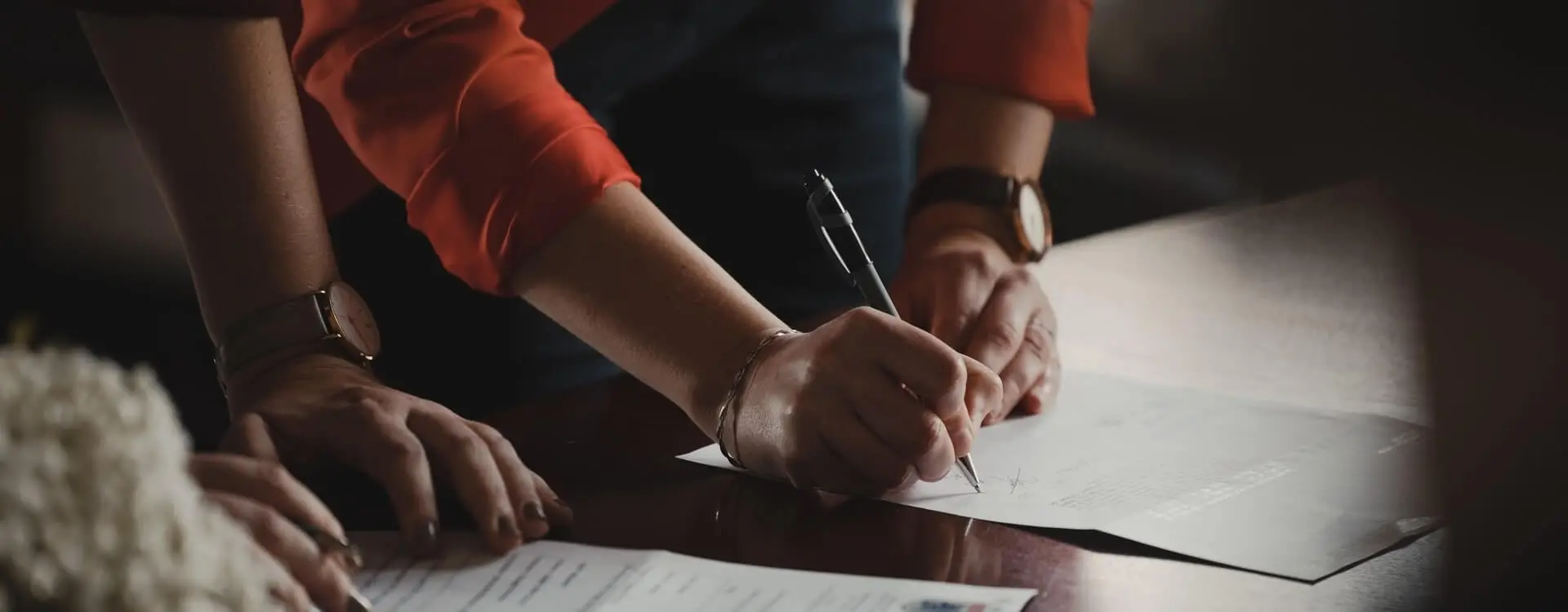Your case will probably not go to trial when you file a personal injury lawsuit. More commonly, the parties to a personal injury lawsuit enter into a settlement agreement.
A settlement agreement is a contract that resolves all claims between the parties. The plaintiff agrees to release their claims against the defendant in exchange for some amount of compensation.
Settlement agreements contain many provisions filled with legal language. One such provision is a confidentiality clause or non-disclosure agreement (NDA).
In legal contracts, a confidentiality clause serves to restrict the disclosure of sensitive information by involved parties, safeguarding personally identifiable data from public exposure, competitors, or any unauthorized third parties.
Agreeing to a settlement with a confidentiality clause is not always in your best interest, and today, we’ll take a look at some reasons not to enter into an NDA.
At the very least, you should consult with an experienced personal injury attorney before signing a confidentiality clause. Contact us online or call 707-426-5300 today for a free case analysis.
Reasons You Shouldn’t Agree to a Confidentiality Clause in a Settlement Agreement
Even though you may think that a settlement confidentiality agreement is typical, there are several instances where a confidentiality clause would not be in your best interest.
Tax Implications of a Confidentiality Provision
One of the primary reasons to reject a settlement confidentiality agreement is the potential tax implications. Generally, the amount you receive to compensate for personal physical injuries or physical illnesses is not taxable.
IRS Publication 4345 (Rev. 11-2021) states that this compensation should not be included in your income when filing your tax return. So, the payment for a personal injury claim should come to you tax-free.
However, when the settlement agreement has a confidentiality clause, some of your personal injury compensation will be taxed.
The IRS’s position on NDAs is that the defendant is paying you a certain portion of the settlement money not to disclose the agreement.
Therefore, the IRS requires you to pay taxes on the amount they believe you received in exchange for confidentiality.
A good personal injury attorney will always make sure that any tax implications are minimized when a confidentiality clause is required.
Public Safety Issues
If the defendant’s behavior may cause additional public harm, you may not want to sign a settlement agreement with a confidentiality clause.
If you think it’s important for the public to know about potential risks, so they are protected from the defendant, you should not sign an NDA.
You Don’t Understand the Confidentiality Clause
Lawyers often draft settlement agreements that only other lawyers can understand. If you do not understand what the confidentiality provision requires of you or the potential consequences of breaching the agreement, you should not sign an agreement with an NDA.
You Expect to Breach Confidentiality
You should not sign a confidentiality clause in a settlement agreement if you do not plan on keeping your settlement confidential.
For example, if you wish to share the terms of your agreement with someone not explicitly listed as exempt in the agreement, you will undoubtedly breach confidentiality. Or, if you want to write a book about your experience, you may breach the confidentiality provision.
Depending on the terms, there may be significant financial consequences if you breach the confidentiality clause of a settlement agreement.
For a free legal consultation, call 707-426-5300 or contact us online
Sometimes, It May Be Necessary to Sign a Confidentiality Agreement
In some cases, the defendant recognizes that they did something wrong and is willing to pay big money to settle the case as long as you sign a confidentiality agreement.
In fact, if you are willing to sign a confidentiality agreement, they might pay a lot more money than they normally would. There is also a potential benefit to you if there’s a confidentiality agreement.
When friends and family start asking how much money you got in your lawsuit, you can honestly tell them that you signed a confidentiality agreement and can’t tell them.
It may help prevent people from asking you for money if they don’t know how much you received.
Important Considerations Before Signing a Settlement Agreement Confidentiality Clause
What Should I Understand Before Agreeing to a Confidentiality Clause in My Settlement?
Before signing a confidentiality clause, ensure you fully understand the restrictions it imposes, such as what information you are prohibited from disclosing, and the potential legal consequences if you breach the agreement.
How Can a Settlement Agreement Confidentiality Clause Impact My Future?
A confidentiality clause can limit your ability to discuss the settlement publicly or share your experience in the future, such as in interviews, books, or media, so it’s important to consider how this might affect your personal or professional life.
Are There Any Exceptions to a Confidentiality Clause in a Settlement Agreement?
Some confidentiality clauses include exceptions, such as allowing disclosure to immediate family, attorneys, or tax advisors. It’s crucial to review these exceptions to ensure you understand who you can talk to about the case.
Schedule a Free Consultation with an Experienced California Personal Injury Attorney First
You should not sign any agreement unless you fully understand it, especially one containing a confidentiality clause. The personal injury lawyers at Wells Call Injury Lawyers are here to help you understand your settlement agreement.
We can negotiate on your behalf when provisions in the settlement agreement, including a confidentiality clause, are not in your best interest.
We’ve recovered hundreds of millions in compensation for clients just like you. With our 40 years of experience, we are equipped to guide you through your case.
Contact us today online or call 707-426-5300 for a free case review.
Our Fairfield, California Office Location

